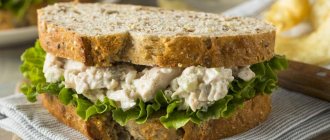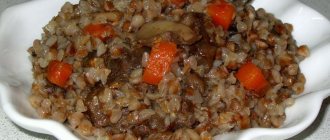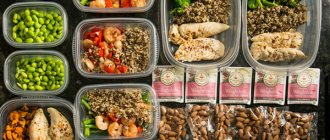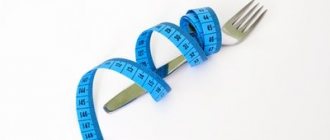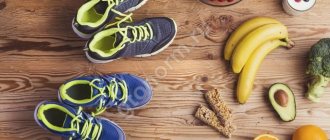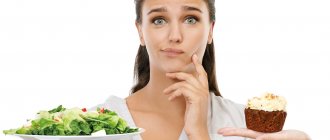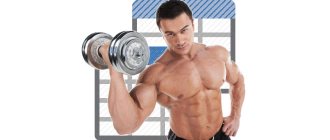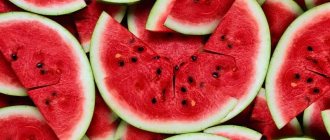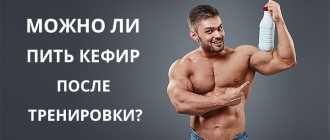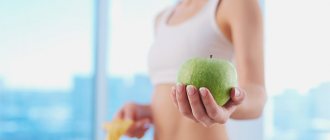March 21, 2015 Published by: admin
Many who decide to do exercises or jog in the morning are concerned about breakfast. When should you eat: before or after your morning workout? If you want to lose weight, it is better to exercise before breakfast. The English-language magazine Men's Fitness published information about a six-week study conducted in Belgium. The purpose of the experiment was to find out whether the order of breakfast and exercise affects weight loss. 28 healthy, active men were invited to participate in the study. During the trial, the calorie content of the participants' usual diet was increased by 30%, and the amount of fat by 50%.
The men were divided into 3 groups. The first group did not perform morning workouts. The second had breakfast before training, the third - after it. As a result, the men from the first group gained an average of about 3 kg each by the end of the experiment. Participants from the second group gained an average of 1.5 kg. The third group remained at their weight. If there were any additions, they were very minor.
The results of the trial led to the conclusion that fat metabolism is better during a “hungry” morning workout. The researchers noted that this principle only works with morning activities. If we are talking about daytime or evening workouts, exercise on an empty stomach does not contribute to faster fat burning.
Eat breakfast or exercise on an empty stomach?
In the study mentioned above, breakfast was complete and satisfying. Light breakfast is a separate issue.
If you want to lose weight , then you definitely shouldn’t overeat before your morning workout. But you definitely need to drink liquid and some energy drink. For example, drink a large cup of sweet tea. Sugar will give you energy, and liquid will make your blood more fluid.
You should know that blood is always more viscous in the morning. If you don’t drink enough fluid and immediately start exercising, your heart will be under enormous strain, because pumping thick blood is much harder than liquid blood. This is harmful and dangerous. Therefore, morning drinks are a must.
Thus, the correct algorithm is: after waking up, a very light breakfast (which can only consist of a drink), then morning activity, a shower and after that a full meal.
If you do not consume at least a little carbohydrates, the body will be weak. During exercise, it will begin to convert its own muscle tissue into energy. But we don’t want this? Of course not. We need muscles! Therefore, before any type of fitness, you need to refuel your body. The more intense and longer the morning exercise or jogging, the more “fuel” is needed. If you do a 15-minute exercise, semi-sweet tea or coffee will be enough for you. If you run for half an hour, you need more energy. You can, for example, drink sweet coffee with milk and eat one cookie with cereal.
After training, a hearty breakfast is required, including proteins, carbohydrates and vitamins. All this is building material for our body.
What to eat after a morning workout to lose weight?
A classic breakfast of eggs and toast is a nutritious post-workout meal any time of the day.
- Eggs are a source of quickly digestible protein and contain many important nutrients such as vitamin A and zinc;
- and whole grain toast contains complex carbohydrates, including fiber, and B vitamins.
Although egg yolk contains fat and cholesterol, eating two eggs with yolk per day will not increase your blood cholesterol. If you want to reduce calories and get the nutritional benefits of the yolk, eating one whole egg with two egg whites is a reasonable compromise.
- Chicken, turkey, beef, whole grain bread and tofu are all healthy post-workout snacks, and whole grain bread provides a high-fiber source of carbohydrates that will help keep you energized longer.
- Vegetables provide a variety of vitamins while being low in calories and high in solid fiber, and brown rice is a source of complex carbohydrates.
Also read what to eat before and after exercise to maintain your figure.
What if you don’t need to lose weight?
A Belgian study found that people who eat breakfast before their morning workout do not lose weight. If we don't need to lose weight, we can easily eat up before exercising or jogging. Is not it? Yes and no.
Why is it bad to have breakfast before morning exercise? Because after a “full” workout, you most likely won’t want to eat anymore. You will go to work or study, take care of business, and only have lunch a few hours later. As a result, the muscles will remain hungry after training. It is not good.
Therefore, if it is difficult for you to exercise on an empty stomach, divide your breakfast into two parts: before exercise, eat more carbohydrates, and after exercise - proteins and vitamins.
The Importance of Post-Workout Nutrition for Weight Loss
Intense training, strength and cardio, leads to muscle breakdown and glycogen depletion. Consuming a combination of protein and carbohydrates within forty minutes after exercise will maximize the recovery of muscle glycogen and muscle tissue. Adequate glycogen levels play an important role in preparing for future workouts. Since your muscles have a high metabolic rate, maintaining muscle mass will help maintain your metabolism as well as lose fat.
Six examples of breakfasts after a morning workout or run
1. Freshly squeezed juice. Oatmeal with milk and berries. Cocoa with milk and cereal cookies. 2. Smoothie with milk. Omelette with mushrooms and broccoli. Cocoa with milk and cereal cookies. 3. Freshly squeezed juice. Fried chicken breast in an omelet mixture. Vegetable and avocado salad. Coffee with milk. Bitter chocolate. 4. Cocktail made from milk and berry syrup. Muesli with nuts, yogurt and honey. Tea and a sandwich with avocado and cheese paste. 5. Freshly squeezed juice. Cheesecakes with honey, sour cream or jam. Soft-boiled egg. Sandwich with caviar. Tea. 6. Milk whipped with honey and banana. Fried eggs. Several pieces of red fish. Salad with vegetables and avocado. Tea and dark chocolate.
So, carbohydrates (cereals, flour products, sweets, including fruits and berries), vitamins and fiber (juice, fruits, berries, vegetables), proteins (eggs, cottage cheese, milk, fish, chicken fillet, caviar, cheese, nuts) are required. . A fitness breakfast should include at least one product from each group.
What to eat after training to gain weight?
If your muscle gain is in full swing, you need to supply your body with as much energy as possible so that your workouts are more productive and your working weights constantly increase. Remember that the principle of progression of loads is the basis of weight gain. For all this you need carbohydrates. Therefore, the answer to the question – should you eat after training – is definitely yes.
Of course, if your goal is maximum muscle tone with minimal subcutaneous fat, it will be better if the basis of your post-workout meal consists of complex carbohydrates with a low glycemic index. This can be durum wheat pasta, rice, oatmeal, buckwheat and other cereals. Traditionally, grains are measured dry to make it easier to calculate the amount of nutrients consumed. The protein part is also important for recovery and growth, so don’t forget about meat, eggs, fish or protein shakes. The meal itself turns out to be quite plentiful and satisfies the feeling of hunger for at least 2-3 hours.
If you have a fast metabolism and have an ectomorphic body type, fast carbohydrates with a high glycemic index are also suitable for quickly restoring strength after a workout. It will be better if you get them not from confectionery products, but from fresh fruits or dried fruits. A sports nutrition product called a gainer was developed especially for ectomorphs who want to gain weight. It is a mixture of whey protein and simple carbohydrates (sugar, maltodextrin, dextrose or amylopectin). However, the advisability of buying a gainer is questionable, because you can easily make it yourself: a portion of whey protein and two bananas or a bag of dried fruits will cover the need for “fast” energy just as well.
If you have a fairly slow metabolism, then it is better to refrain from taking simple carbohydrates after training. This puts a lot of stress on the pancreas and increases the production of insulin, which promotes the formation of fatty tissue. In addition, simple carbohydrates greatly worsen your appetite, and after this you will no longer be able to eat the amount of food necessary to gain muscle mass.
There is no need to make your post-workout meal high in fat. This will make it more difficult to digest. Fats, of course, must be present in the diet while gaining muscle mass; this is important for the synthesis of hormones and the normal functioning of all body systems. The so-called unsaturated fatty acids are especially useful. They are found in flaxseed and other vegetable oils, red fish, seafood, nuts, and avocados. But it is advisable not to consume more than 25-35 grams of fat at a time after training.
There is a hypothesis called the “anabolic window”. Its essence is that any food you eat within 30-60 minutes after training goes to replenish glycogen stores in the muscles and liver and to repair damaged muscle tissue. Research does not confirm this hypothesis, but many athletes adhere to it quite successfully during the period of gaining muscle mass. However, many interpret it too literally: “after training, you can eat whatever you want and not gain weight.” With these thoughts in mind, they go to the nearest fast food establishment and close this “anabolic window”. That's not how it works.
When it comes to sports nutrition products, it is best to opt for regular whey protein. This is the optimal product according to the price-quality criterion. Each serving contains 20-25 grams of easily digestible protein and several grams of carbohydrates and fats.
The table below contains several sample post-workout meal options during muscle gain:
| Products | Calorie content, amount of proteins, fats and carbohydrates |
| 100 grams of oatmeal with water, 100 grams of strawberries, 2 whole eggs, 5 egg whites | 650 calories, 30 grams protein, 12 grams fat, 80 grams carbohydrates |
| 100 grams of brown rice, 150 grams of grilled chicken fillet, fresh vegetables | 550 calories, 40 grams protein, 4 grams fat, 80 grams carbohydrates |
| 100 grams of durum wheat pasta, 200 grams of ground beef, 100 grams of white beans | 900 calories, 50 grams protein, 32 grams fat, 90 grams carbohydrates |
We also recommend that you familiarize yourself with examples of diets for gaining muscle mass.
The best food after a day's workout for weight loss
Proper (complex) carbohydrates need to be replenished after exercise because they will be used as the body's main source of fuel. Again, choose high-fiber carbohydrates (whole grain bread, brown rice, vegetables) paired with protein (eggs, milk, meat, legumes, fish) to help repair your muscles.
Avoid simple carbohydrates after a workout, and generally throughout the day, if you want to lose weight. White bread, pastries, and sugary candies are devoid of fiber and provide a quick burst of easily digestible carbohydrates, raising blood sugar levels that fill you up quickly but leave you hungry an hour later. And it won't help you lose weight.
Fats should not be included in your post-workout meal because they slow down the breakdown of proteins, increase the calorie content of food, and instead of restoring, the body spends effort digesting fats. It's no secret that when losing weight, fats should be reduced in the composition of dishes, but not eliminated completely. The right unsaturated fats are able to remove free fat from the body thanks to their chain of molecules. The paradox is that fats help you lose weight.
Remember , when losing weight, you need to be afraid and exclude simple carbohydrates, and remove complex carbohydrates from food in the late afternoon.
